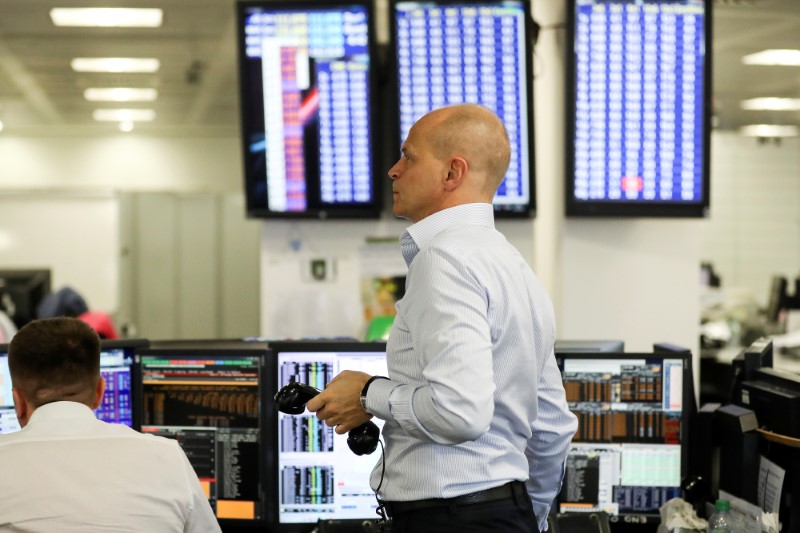(Bloomberg) -- As developed-market yields slump, keep pouring money into Petroleos Mexicanos bonds ahead of the company’s third-quarter earnings.
The bonds have rallied to their highest since April 2018 as money managers turn more sanguine about the state oil firm following a $7.5 billion bond sale to refinance its debt, potentially staving off another ratings downgrade. Pemex’s dollar-denominated bonds maturing in 2027 jumped 14% from their November low to 105.4 cents on the dollar, climbing for an eighth consecutive day on Tuesday.
The world’s most indebted major oil company is at the center of President Andres Manuel Lopez Obrador’s battle to convince investors that his government will be fiscally responsible. Pemex is struggling to reverse more than a decade of production declines and reduce a debt burden of over $100 billion while balancing the need to finance Mexico’s budget, which relies on Pemex for nearly a fifth of its revenue. Still, in a low-yield world, not even Pemex’s challenges can deter investors.
“There’s a tremendous search for yield,” said Luis Maizel, a senior managing director at LM Capital Management in San Diego, who recently converted part of his Mexico sovereign debt into Pemex to take advantage of the high spread. “Here you have a paper that’s still part of the benchmark indexes, that’s still investment grade, and that’s paying a good coupon.”
Extra support for Pemex bonds came after Mexico’s finance ministry said earlier this month that Pemex’s total refinancing, including a $5 billion cash injection from the government, debt swaps and new bond issues, reached $20.13 billion. Pemex said it sold bonds at seven, 10 and 30 years for $7.5 billion to refinance short-term debt. It also repurchased and exchanged dollar-denominated bonds that expired between 2020 and 2025 for $8.7 billion and exchanged bonds in dollars maturing between 2041 and 2048 for $3.9 billion.
The success of the company’s refinancing has helped investors see past the risk of a downgrade. Fitch Ratings cut the company’s credit to junk in June, and a similar decision by either Moody’s Investors Service or S&P Global Ratings would push the bonds off investment-grade indexes, leading to a forced sell-off.
Last week, PMI -- Pemex’s trading arm -- sent new formulas for pricing the nation’s crude exports to refiners and other buyers, helping assuage clients’ concerns after the announcement was delayed last month. A disagreement within the company over an external review of the formulas sparked an exodus from PMI, according to people familiar with the matter. The formula underpins not only physical crude sales made by Pemex, but also Mexico’s annual sovereign hedge, the largest of its kind.
Pemex is expected to report a slight uptick in its refining output in its quarterly results on Monday. It has also said that crude oil production, which has declined every year for 14 years, is in a process of stabilization. Pemex’s oil production rose 0.7% in August compared with the previous month to reach 1.68 million barrels a day. Its six refineries processed 658,906 daily barrels of crude in August, a 0.3% increase from July, according to data from Mexico’s energy information agency.
If the company can show signs of turning production around in Monday’s report, it may calm investors and present a good argument for picking up high Pemex yields.
“Where else can you get this kind of yield if you’re a fund looking to bring in money?” said Maizel, who says he isn’t expecting downgrades anytime soon. “For a while, you can be in Pemex and be comfortable.”
(Updates Pemex bond performance in second paragraph)
